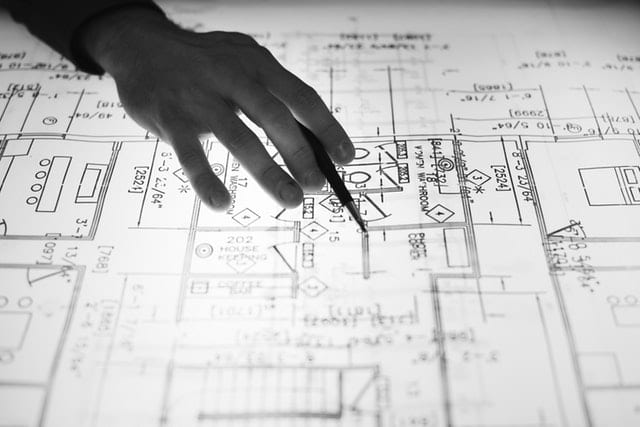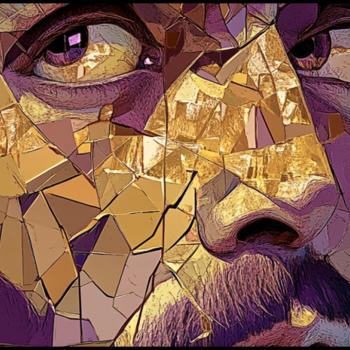
Deconstruction isn’t easy. I think anyone who has gone through it, or still going through it, can agree with that.
Losing friends, fellowship and family as you shed your theological beliefs is one of the most excruciating things imaginable. Many people end up feeling isolated, rejected and confused, without any idea where to go next or what to believe about God, the Bible or reality itself.
Without someone to help you through this process, it’s doubtful that you will come out the other side with any sense of stability regarding your faith, or any sense of hope about how to move forward.
In my own case, I was extremely fortunate. My wife, Wendy, was beside me every step of the way. She helped me process my thoughts and feelings, she encouraged me not to give up, and she comforted me when we lost friends and family along the way. I really don’t know if I could have survived without her help, to be honest.
But, many people are not so fortunate. They either don’t have a spouse to lean on, or their spouse isn’t tracking with their deconstruction process. So, they have the additional fear of losing the closest person in their life in addition to everything else they lose along the way.
Some are lucky enough to have a close friend who helps them through it, others have an online community that helps provide a small measure of comfort emotionally and psychologically as they go along, but those relationships are usually no replacement for the connections that have been severed through their deconstruction process.
At the end, it’s like standing on the foundation of what used to be your house after a tornado or a hurricane has just blown everything away and scattered the life you once knew to the four winds.
Somehow, out of all of that wreckage, people are left – mostly on their own – to try to piece together something that looks like a new paradigm for faith and life.
That’s the Reconstruction process. And it’s no easier, or less painful, than Deconstruction. But it does involve a completely different set of steps to navigate.
Frankly, this is why I felt called to launch “Square 1” – a 90 day online coaching experience designed to help people survive toxic Christianity and move from Deconstruction to Reconstruction as carefully and painlessly as possible.
As I started to look around I realized that there was very little out there to help people who find themselves standing in the aftermath of Deconstruction.
I talk to people on a daily basis who are exactly in this place. And I’m not exaggerating when I say “daily basis.”
People send me emails, texts, private messages and comments asking if they can talk to me on the phone about something they are deconstructing, or Skype with me about what they’re going through as they doubt the faith they were handed as a child, or they send me a list of questions that they need me to help them process through.
And I take the time to respond to each and every one of them. But, the reality is this: I can’t really help these people if all I do is give them an answer here and a comment there. I can’t really walk them through this process from a distance. And it’s really inefficient to try to answer the same questions over and over again for dozens of people on a random basis. What is required is an intentional, step-by-step program that allows me to talk to a group of people all at once, walk them through each phase, answer questions as they arise, and help them take actionable steps that move them from Deconstruction into Reconstruction.
So, that’s what I’m committed to doing for 13 weeks, starting Sept. 30. In addition to writing and recording weekly video lectures that cover each step of the process, I’ll also meet one-on-one with each person to give them personal attention, and host weekly group conference calls to track their progress along the way.
Our goal is to move from Deconstruction to Reconstruction. And the Reconstruction process involves a few essential elements. Here are some of the major components of Reconstruction:
*A new perspective on faith – Under our old religious indoctrination system what mattered most was “being right” about our theology. But now that we’ve questioned everything we once held dear we need to embrace the idea of mystery and learn to be ok with the idea that we don’t know the answers to everything. We might be wrong about some things and right about other things. But we never want the cement to harden again. We want to keep stirring the concrete, keep adding water, keep adding cement, don’t allow our beliefs to become unquestionable again. Because part of what was so painful in our deconstruction process was taking the sledgehammer to those old beliefs that we had allowed to become hardened and dogmatic.
*Rewiring our brains – Along with taking a new perspective on our faith, we need to develop new practices that lead us to focus on the positive aspects of deconstruction and avoid the grooves we’ve created in our brain that lead us to be critical, defensive, argumentative and negative. This isn’t easy to do. But, the good news is that modern psychology and brain science has revealed that our brains have a plasticity, and that means that we can re-train our brains to create an experience of life that is more hopeful and joyful and healthy, if we’re willing to take the necessary steps.
*Forgiveness – This is probably one of the hardest elements of the Reconstruction process, but I dare say it is the most essential of the all. As long as we harbor bitterness and unresolved feelings of anger towards those people who have hurt us during our Deconstruction process, we can never, ever experience true healing and freedom. It’s simply unavoidable that we will have to face this one head on if we really hope to move on to Reconstruction.
*New faith practices – This is where we replace our old patterns with new patterns. Much like an alcoholic who needs to both stop drinking and start doing something new to replace that old habit, we also need to do more than simply stop believing and practicing our old religion and start believing and practicing something new to replace what we’ve lost. This can involve a variety of things like meditation, silence, journaling, spending time in nature, serving others in some capacity, practicing gratitude, nurturing new friendships, and other practices that feed us with life, connect us with the Divine and enable us to incarnate our faith in practical ways that generate genuine expressions of faith, hope and love.
These are only a few of the steps we need to take if we want to move into our Reconstruction phase of life. This is part of what I’ll be helping people experience as we go through the 90 Day “Square 1” program.
If this sounds like something you really want to experience, I invite you to join me at Square 1 on Monday, Sept. 30. There’s still time to sign up here.
I can’t wait to get started!
**
Keith Giles was formerly a licensed and ordained minister who walked away from organized church 11 years ago, to start a home fellowship that gave away 100% of the offering to the poor in the community. Today, He and his wife live in Meridian, Idaho, awaiting their next adventure.
Can’t get enough? Get great bonus content: Patreon page.













